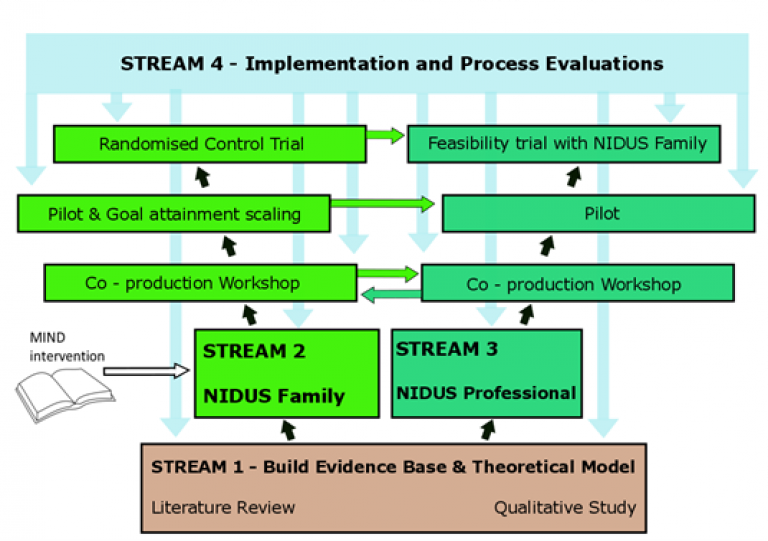About the NIDUS study
Most people with dementia want to remain living in their own homes for as long as possible. One way this can be done is through visits by paid home carers. However, Alzheimer Society’s Fix Dementia Care campaign found that only 2% of people affected by dementia believe home care workers had sufficient dementia training. This lack of training often causes breakdowns in these relationships, severely affecting the care of the person with dementia.
Family carers may also be able to support people with dementia to live at home for longer. However, problems with behaviour and communication can often cause family carers a great deal of stress. Increased carer stress and worries about safety often lead to the decision to move the person with dementia into a care home.
This Alzheimer’s Society funded Centre of Excellence will develop and test evidence based training and support programmes to help family (NIDUS-family) and paid home carers (NIDUS-professional) to provide high quality care to people living with dementia. These programmes have been co-developed with family carers, people living with dementia, home carers and health professionals to ensure the needs of people living with and affected by dementia are incorporated. You can read more about the study on the Alzheimer’s Society website.
For more information on the programmes please click on the boxes below:
What will this research address?
The researchers aim to understand how to help both family and home carers to best care for a person with dementia at home. This includes understanding how to address challenging behaviours that can increase family carer stress and affect relationships. They will also find ways to help home carers to improve the quality of care that they provide.
How will this improve dementia care?
Most people with dementia want to live in their own homes as long as possible. To help them to do this, a programme of care that is centred on the person with dementia and that addresses their needs is essential.
We aim to test whether the programmes that we develop will enable paid home carers to receive much needed training in dementia care, help family carers to reduce stress and improve relationships and, enable people with dementia to remain independent at home for longer. If the programmes are effective, we also want to find out the best ways of getting them adopted into everyday practice.
Who is working on the project?
Led by Professor Claudia Cooper at UCL, the project is being run in close partnership with the University of Bradford; it is also working closely with Anglia Ruskin University, Kings College London, University of Exeter and the home care agencies SweetTree and Jewish Care. The project also includes international collaborators, with specialists from Canada (Professor Ken Rockwood) and Australia (Professor Briony Dow at the National Aging Research Institute (NARI)) adding their expertise.
For a full list of team members across both UCL and Bradford sites, visit our meet the team page.
What will the researchers do?
The project is split into different streams. Stream 1 is now complete and focused on building an evidence base and theoretical model. Researchers carried out systematic reviews of existing evidence, interviews with family carers, health and social care professionals, home carers and people living with dementia, and non-participant observations with home carers working with people living with dementia. The findings from Stream 1 have been used to produce the two programmes which we are currently finalising and testing: NIDUS-family (Stream 2) and NIDUS-professional (Stream 3). Stream 4 will commence in year 4 of the study; this work will focus on implementation and process evaluations.

 Close
Close



